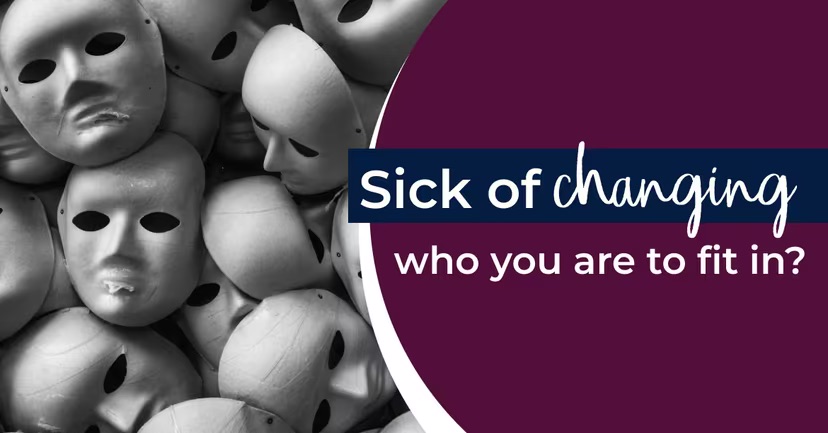This post was originally published on Engenisis.
Do you struggle to move forward with an idea unless everything is perfect? Does procrastination get in the way of your productivity as an emerging leader? If you answered yes to one or both of these questions, you are not alone. While you may take comfort in knowing procrastination and perfectionism are relatively common, they are counterproductive habits that can lead us to fall short of achieving our intentions. So how do we let go of the need to constantly strive for perfection, which commonly results in procrastination, and lead with purpose instead? Let’s begin with perfectionism.
Perfectionism
Perfectionism is the belief that there are standards and expectations we subscribe to that we can’t possibly reach. When we strive for perfection, we are always waiting or hesitating until we’ve got things right, then giving up before we finish. For many, it’s living in anticipation that if we become successful, we might not cope. So we choose comfort and give up on our biggest dreams and desires.
All perfectionism has the potential to lead to procrastination. When we strive for perfection, we let it run the show, making it very difficult to step forward amid uncertainty and discomfort. Yet we all know people who have kept climbing despite the discomfort and the adversities they’ve faced. Through courage and persistence, they’re already beating perfectionism and procrastination.
Procrastination
We all procrastinate from time to time. It happens in all the micro-moments in life, whether it’s:
- stalling on exercising despite knowing how it improves our health and fitness,
- avoiding difficult conversations out of fear of conflict,
- refraining from asking questions in case we look silly, or
- avoiding seeking support when we need it.
Each hesitation has the potential to go unnoticed until our failure to achieve something that we really care about smacks us in the face. Logically, we know that to grow, we must push through the discomforts. I’ve had many moments where I’ve fought against the urge to quit, but I knew there would be more discomfort in quitting as it would be unbearable in the long run. We choose to procrastinate and we choose our distractions, yet we can often be in denial of our choices. If we can choose to procrastinate, why can’t we choose not to procrastinate? Is letting yourself off the hook worth it?
The ‘get real’ approach to imperfection
All of us fall short of perfection. Even people at the top of their field do not achieve perfection in most areas of their life. For example, professional athletes won’t always perform perfectly in their sports. This doesn’t mean we can’t try hard to do our best and strive to be proficient and excel. However, proficiency requires practice, and even the most successful people in the world failed on their first, second and third attempts. It’s the willingness to give things a go without fear of falling short again and again that gives us the ability to be with our imperfections.
Raising our walls demonstrates an unwillingness to be vulnerable. For anyone who wants to live a fulfilled life, pretending to ‘have it all together’ is a trap. It’s another way of hiding our perceived inadequacies and guarding against failure, which can lead to thoughts like, “If I can’t do it perfectly, I won’t do it at all”. Instead of believing perfectionism is something to admire and pretending our shortcomings don’t exist, we can choose to be vulnerable and get real.
According to Ashkan Tashvir, author of Human Being, “[vulnerability] is how you are being when confronted or exposed to perceived threats, ridicule, attacks or harm (emotional or physical). Vulnerability is not being weak, agreeable or submissive. It is when you embrace your imperfections.”
Ashkan goes on to say, ”This powerful Mood sets you free because it allows you to learn from the past or your current shortcomings and grow in all aspects of your life, personally and professionally.”
At the time, resisting discomfort may feel like a better option than failing, but I’ve repeatedly discovered that we can’t keep up the facade forever. There is freedom in being vulnerable.
Time and time again, vulnerability has enabled me to:
- be resourceful,
- see things I wouldn’t be able to see if I was guarded,
- be willing to ask questions I would have once thought were silly, and
- take risks when I believed current paradigms were set in solid rock.
I once consulted in a large emergency services organisation of 4000+ operational staff to develop their statewide operational trainers’ groups. I introduced new ways of thinking about learning, training, assessing and leadership. Initially, many were resistant to these new ways of thinking, and I had concerns about how and even whether to progress. I found myself questioning my decisions and judging my imperfections, and my ‘I’m not good enough’ narrative loomed in the background. I saw the resistance as a threat at first, which I started to guard myself against. But, over a couple of weeks, I reflected on the difference the training was likely to make, and I chose to lean forward into it.
I realised that the operational trainers were also guarding themselves against the threat of something new. I wasn’t expecting them to know everything, so how could I expect they knew this? The answer is by letting down my guard and not having that expectation of myself, which meant being willing to be vulnerable. Because I moved forward with the program through all these challenges, I saw positive and tangible changes in how they trained, led and ran their operational assessments.
Even when we experience threats, it doesn’t mean we’re inadequate. All of us are imperfect, so why not embrace our imperfections so we can overcome procrastination, lean forward and make a real impact? What would you do if you could accept that you will make mistakes?
Vulnerability and imperfection are your superpowers
One of our greatest fears is that there will be negative consequences if we reach beyond our current self-imposed limitations. Yet the paradox is that we must overcome procrastination to live a life beyond our current limitations. We can achieve this by leaning into our imperfections and dropping our guard against threats that will likely never happen.
What is the real cost of procrastination to you? Can you accept and live with your flaws to the point that you become a beacon of change you want to see in the world? Can you see beyond your limitations to commit to a goal or a cause? Are you willing to take that risk and be ‘all in’?
Being vulnerable gives us the freedom to act on the things we truly care about, despite our perceived inadequacies. So no matter how often you have to refine your ideas, you will do it because it means so much to you.
Your contribution can add value to the world – it matters. Engaging a coach can help you to work with the deeper parts of you that feed procrastination, refine your vision, build progress and ultimately live a fulfilled, purposeful life. If these are changes you want to see in your life, be vulnerable and reach out to me to help you realise them.




